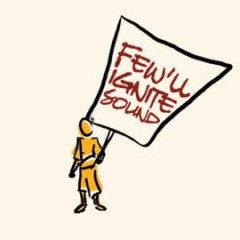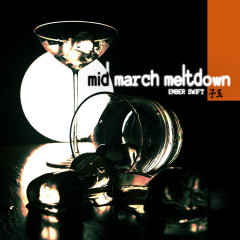Verbal Bullets
“What the hell is your problem?”
“I’m not the one with the problem! You are!”
>SLAM<
>SLAM<
Ever had a fight like that with the person you are supposed to be in love with?
I never knew how closely culture was linked to how a person handles verbal conflict. That is, I never knew until I was in a bi-cultural relationship. Even after five years, we still handle conflict very differently and probably always will. While some of those differences are personality-based, I think the most interesting one is definitely cultural; that is, the issue of verbal bullets, or harsh words.
Having already weathered years of criticism and scolding from their parents, Chinese people seem able to readily discard verbal conflict just moments after it has occurred and resume their day as though nothing has happened. Harsh words are seen as necessary for the other person to say, as though this is key to full expression of anger or frustration. They are not considered permanent reflections on the opposite party. To put it bluntly (no pun intended), insults are seen as part of the anger and/or part of the concern being expressed by the one who is angry, not some sort of revealed truth about the person on the receiving end.
An American friend of mine recently told me that her Chinese husband’s parents regularly call him “stupid” to his face or refer to him that way while he is within earshot. She was so struck by this that she asked her husband why he never seems bothered by it. His response was that it simply isn’t true, that he was far more intelligent than his parents are and so why should he be upset by it?
It’s inspiring… in a way.
I have heard Guo Jian and his mother arguing many times now. They say absolutely horrible things to each other—usually at the top of their lungs. It’s shocking, in my books, and really rattles my nerves. Then, an afternoon passes and dinner happens without a hitch; there is no fall-out or residual response to those terrible words in either of them. It’s as though they were never said. Neither affixes those words to their inner hearts (a direct translation of a common expression in Chinese: “bu yao wang xinli tie 不要往心理贴”).
I, on the other hand, seem to retain hurtful words indefinitely. I can’t tolerate the verbal artillery and simply won’t tolerate it. It’s not the way I was raised and it’s not acceptable to me in any context, and most of all from loved ones. What’s more, if I am the recipient of even one of those insulting verbal bullets, it seems to blow a hole right through my heart. I don’t forgive quickly and the fall-out lasts much longer than Guo Jian has ever experienced before in previous relationships. He thinks I’m too sensitive. He couldn’t understand why I was still fragile and distant the next day after some of our early fights; in his mind, it was long over.
He’s learned to control his tongue around me, for the most part. I’ve learned to hold up an imaginary shields sometimes for stray bullets. When I have to use those shields, I’m not happy about it and I make that clear, but at least I have learned to engage protection rather than take it all to heart.
On the flip side, I have learned through living in China that occasionally letting loose, verbally, can actually be therapeutic. I used to do it in English with him sometimes, out of kindness and consideration for his feelings (since he couldn’t understand me), but also just to let off steam when my Chinese verbal skills weren’t enough to communicate clearly. But now, the few times that I have unleashed a torrent of angry Mandarin onto him, replete with insults and criticism and disgust for everything about him (okay, I may have gone overboard!), I have watched my partner just let me have those moments as my own.
After a few hours have passed, he’s forgotten all about it. The impact of words is much more superficial in his culture, as though they never have weight when spliced with anger. There’s something liberating in that. I remember chanting, “Sticks and stones will break my bones but names will never hurt me!” as a kid while I stuck out my tongue at the bullies who said mean things. Yet, in reality, that little rhyme wouldn’t even exist in our culture if it weren’t to counteract the truth: words do hurt.
Or, are we are taught to let them?
My occasional lapses into “Chinese conflict behaviour” (a failed attempt at a nicer way of saying “losing my shit”) may also seem comforting to Guo Jian—familiar. What’s more, those lapses must act as partial justification for some of those stray bullets he has fired over time, although I’ve never asked him that. That’s probably just me imposing my cultural perspective again.
Because, after all, everything would be perfect if I could only shed the guilt that I invariably feel for acting so out of character—so heartlessly! I usually feel terrible immediately afterwards and want to make it up to him, making me much sweeter than usual. There’s got to be something better about someone wanting to “make it up to you” rather than someone who seems oblivious to the fight ever having happened, right?
But again, it’s my cultural perspective. I can never shed this lens through which I see every social interaction and always will. Nor can he shed his. And, we’ve got what we’ve got. I’ll always be a Canadian woman raised in a Western country and he’ll always be a Chinese man raised in China. Our respective cultures will always be foreign to each other. Two foreigners—one relationship.
But it could be worse.
The last time we had a fight that was ended by two rattling door frames, a few hours later he returned with some chocolate and an apology. I decided to let it go. Chocolate is persuasive.
I guess we’re rubbing off on each other!








